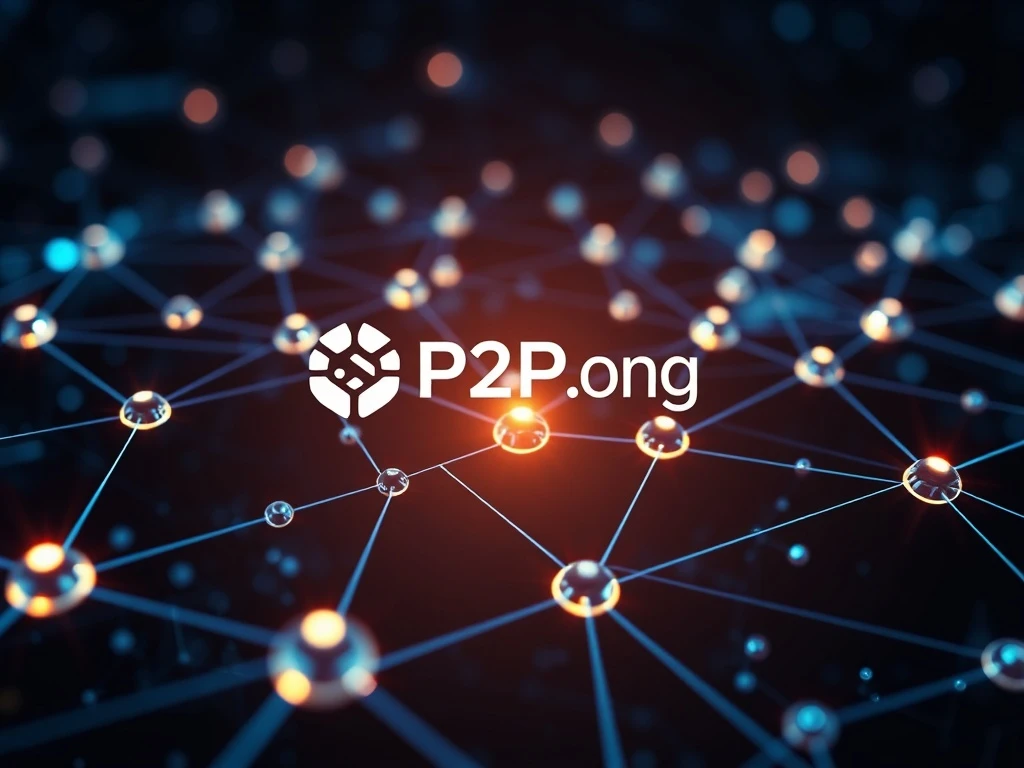Unlocking Trillions: P2P.org Validates the Future of Institutional Blockchain on Canton Network

The financial world is undergoing a quiet revolution. Traditional institutions are increasingly turning to blockchain technology. A significant development highlights this shift. P2P.org has become a key **P2P.org Validator** on the **Canton Network**. This move marks a crucial step forward for **institutional blockchain** adoption.
P2P.org Joins the Transformative Canton Network
P2P.org, a leading staking infrastructure provider, recently joined the **Canton Network** as a validator. This collaboration is highly significant. It underscores the rapid growth of institutional-grade blockchain solutions. The Canton Network, launched in May 2023, is a specialized blockchain platform. It caters specifically to institutional finance. This network already handles over $4 trillion in tokenized assets. As a validator, P2P.org will operate essential nodes. These nodes verify and record transactions across the network. This role is fundamental to the network’s integrity and security.
The Canton Network focuses on several key areas. These include real-world asset (RWA) tokenization, seamless interoperability, and strict adherence to compliance standards. These features are vital for traditional financial entities. P2P.org manages over $10 billion in assets. It operates across more than 40 blockchain networks. Its inclusion in Canton’s ecosystem adds significant expertise. This ecosystem already boasts major financial players. Names like Goldman Sachs, JPMorgan, Citi, Santander, Bank of America, HSBC, and BNP Paribas are all involved. This impressive list demonstrates Canton’s serious institutional appeal.
Addressing Institutional Demands with Blockchain Innovation
Jonathan Reisman, a product manager at P2P.org, highlighted a core challenge. Many existing blockchains were not built with institutional requirements in mind. This design gap has historically slowed adoption in traditional finance. However, solutions like the **Canton Network** bridge this gap. Reisman explained that Canton brings firms into an ecosystem. Here, asset tokenization, secure trading, and even innovations like BTC wrapping can thrive. All these developments align perfectly with institutional standards. He further noted the privacy benefits. Validators on Canton only process transactions they are party to. They maintain these on their own ledger. This design makes privacy more straightforward. It is also inherently institution-friendly. Such features are critical for sensitive financial operations.
The rise of **RWA Tokenization** is a major driver here. Tokenizing real-world assets transforms illiquid assets into digital tokens. This process enhances liquidity and accessibility. It also streamlines ownership transfers. Institutions are keen to explore these benefits. Canton provides a robust and compliant framework for this. Consequently, more traditional assets can move onto the blockchain. This shift promises greater efficiency and transparency.
The Ascent of Institutional Blockchain Staking
Staking has emerged as a dominant trend in the crypto industry. It offers a way to secure networks and earn rewards. On most proof-of-stake blockchains, validators lock up crypto. They receive yields in return for securing the network. Institutions are increasingly engaging in **Blockchain Staking**. They are pushing into public blockchains like Ethereum. The Canton Network, however, employs a unique reward mechanism. It issues its native token, Canton Coin. This token’s distribution aligns with participant activity on the network. Infrastructure providers receive 35% of the distribution. Application developers get 50%. Users receive the remaining 15%. This design directly ties rewards to actual usage and engagement. Each application also maintains flexibility. It can set its own degree of openness and confidentiality. This model encourages active participation and innovation.
The broader trend of building robust **institutional blockchain** infrastructure continues to gain momentum. For example, Lido launched its v3 upgrade with ‘stVaults.’ These modular contracts provide institutions with more control and compliance features. This launch responded to growing institutional demand. Similarly, Anchorage Digital recently added institutional custody and staking for Starknet’s STRK token. This service launched with an attractive initial yield of 7.28% APR. These examples show a clear market need. Institutions require tailored blockchain solutions. They seek secure, compliant, and scalable options.
Regulatory Clarity Fuels Institutional Adoption and RWA Tokenization
Regulatory developments in the United States are also boosting investor demand for crypto yields. In August, the Securities and Exchange Commission (SEC) issued new guidance. This guidance focused on liquid staking. Liquid staking allows investors to deposit crypto with a provider. They then receive ‘receipt tokens.’ These tokens can be traded or used in decentralized finance (DeFi). Meanwhile, their original assets remain staked. The SEC clarified that these receipt tokens do not constitute securities offerings under certain conditions. Industry executives widely hailed this decision. They described it as a significant win. It benefits both DeFi and traditional institutions. This regulatory clarity reduces uncertainty. It paves the way for greater institutional participation. It also further legitimizes **RWA Tokenization** efforts.
The integration of P2P.org as a **P2P.org Validator** on the **Canton Network** symbolizes a pivotal moment. It showcases the maturation of blockchain technology. It also highlights its increasing acceptance within traditional finance. The network’s focus on privacy, compliance, and interoperability makes it ideal. It is perfectly suited for complex institutional needs. This evolution promises to unlock new efficiencies. It will also create novel financial products. The future of finance looks increasingly digital and interconnected. Blockchain solutions are at its core. This collaboration strengthens that vision. It solidifies the foundation for a tokenized financial future.









